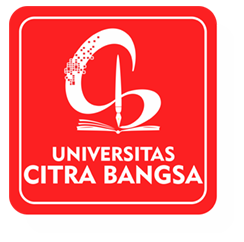PENGARUH MODEL PEMBELAJARAN KOOPERATIF TIPE MAKE A MATCH TERHADAP MOTIVASI BELAJAR MATEMATIKA SISWA KELAS III SEKOLAH DASAR INPRES LABAT KOTA KUPANG
Keywords:
Make a match, motivasi belajar, motivation to learnAbstract
ABSTRAK
Pembelajaran matematika siswa tidak sekedar belajar pengetahuan kognitif, namun siswa diharapkan memiliki sikap kritis ,obyektif, terbuka,cermat dan mencintai keindahan matematika. Dalam melaksanakan pembelajaran di kelas, guru melaksanakan pembelajaran yang monoton yang tidak jarang membuat siswanya menjadi jenuh. Penelitian ini bertujuan untuk mengetahui pengaruh model pembelajaran kooperatif tipe make a match terhadap motivasi belajar matematika. Desain eksperimen yang digunakan dalam penelitian ini adalah Quasi Experimental Design, penelitian ini dilakukan di SD Inpres Labat Kota Kupang. Jenis sampel yang digunakan dalam penelitian ini yaitu Nonprobability sampling dengan menggunakan teknik pengambilan sampel sampling sistematis .Instrumen penelitian yang diberikan berupa kuesioner sebanyak 20 butir pernyataan yang diberikan pada kelas kontrol dan kelas eksperimen.Teknik analisis data dalam penelitian ini menggunakan SPSS Statistic V 16 untuk menguji normalitas data, homogenitas varians, uji linieritas dan uji-t untuk menguji hipotesis. Hasil uji hipotesis pada tabel Independent Samples Test terlihat bahwa nilai sig. (2-tailed) uji t-test for Equality of Means sebesar 0,000 maka nilai signifikan < 0,05 artinya tolak Ho dan Ha diterima. Kesimpulan dari penelitian ini adalah model pembelajaran kooperatif tipe make a match dapat meningatkan motivasi belajar matematika pada siswa kelas III SD Inpres Labat Kota Kupang.
ABSTRACT
Student mathematics learning is not just learning cognitive knowledge, but students are expected to have a critical attitude, objective, open, careful and love the beauty of mathematics. In carrying out learning in the classroom, the teacher carries out monotonous learning which often makes students become bored.This study aims to determine the effect of the make a match type of cooperative learning model on mathematics learning motivation. The experimental design used in this study was Quasi Experimental Design, this research was conducted at SD Inpres Labat, Kupang City. The type of sample used in this study is Nonprobability sampling using systematic sampling technique. The research instrument provided was in the form of a questionnaire of 20 items given to the control class and the experimental class. Data analysis techniques in this study used SPSS Statistics V 16 to test data normality, homogeneity of variance, linearity test and t-test to test hypotheses. Hypothesis test results in the Independent Samples Test table shows that the value of sig. (2-tailed) t-test for Equality of Means is 0,000, then a significant value <0.05 means that Ho and Ha rejects. The conclusion of this study is the make a match type of cooperative learning model can remind students of motivation to learn mathematics in class III SD InpresLabatKupang City.
Downloads
Published
Issue
Section
License
Every works in SPASI is licensed under a Creative Commons Attribution-ShareAlike 4.0 International License.
Authors who publish with this journal agree to the following terms:
- Authors retain copyright and grant the journal right of first publication with the work simultaneously licensed under a Creative Commons Attribution License that allows others to share the work with an acknowledgment of the work's authorship and initial publication in this journal.
- Authors are able to enter into separate, additional contractual arrangements for the non-exclusive distribution of the journal's published version of the work (e.g., post it to an institutional repository or publish it in a book), with an acknowledgment of its initial publication in this journal.
- Authors are permitted and encouraged to post their work online (e.g., in institutional repositories or on their website) prior to and during the submission process, as it can lead to productive exchanges, as well as earlier and greater citation of published work (See The Effect of Open Access).




